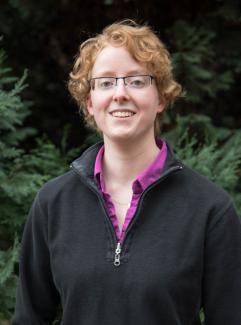Honors Tutorial College in Music
The Honors Tutorial College program in music is designed for excellent scholar musicians who wish to work closely with dedicated faculty through tutorials, individual lessons, and ensembles. The program balances a commitment to breadth and rigor, while providing opportunities for self-disciplined and highly motivated students to creatively explore fundamental and cutting-edge issues.
The degree includes a tutorial each term, applied study and upper-division music courses, language courses, and collateral studies. Individualized instruction and a flexible curriculum allow each Honors Tutorial College student to pursue a course of study tailored to his or her interests, including music history, music theory, composition, performance, or some combination.
What you’ll learn
Students work with the Director of Studies in music to design a curriculum based on their particular interests and talents, with breadth of experience, depth in selected areas, and superior achievements as the goals. The Director of Studies functions as curriculum advisor and coordinator of tutorials throughout the student’s program. This program is for high ability students who prefer a more independent approach than is available in traditional programs. Students have the opportunity to progress well beyond material covered in conventional courses, insuring excellent preparation for graduate study.
HTC Student experience:
-
Students take eight tutorials in four years. The tutorials for the first two years have a fixed content.
-
Year one focuses on theory, musicianship, and functional keyboard skills, while year two focuses on music history, with more intensity and depth than courses otherwise available to students.
-
Third-year tutorials allow students to pursue areas of interest, while fourth-year tutorials focus on the completion of a thesis.
Message from an Alumna
Natalie Klco is an HTC alumna in physics and music specializing in marimba performance. Between long-distance visualizations playing her marimba, Francisco, Natalie is currently pursuing her PhD in quantum simulation with the Institute for Nuclear Theory at the University of Washington in Seattle. Both her music and physics passions stem from intrigue towards the dynamically emergent phenomena of highly correlated systems described with digitized time to create a continuous experience of reality. One of her life goals is to have a marimba in her office regardless of the official field of research that office represents.
“Defining the HTC is nearly impossible - almost as impossible as it is to exaggerate its impact. As an HTC student, your academic explorations become a personal intellectual journey guided by experts in your field. Advisers and professors become colleagues for life. As a student who desired deep study in two usually divergent areas of study, the HTC was a haven for creative connections and consumingly focused experiences. External barriers to progress are lifted, creating an environment supremely valuing intellectual growth and development. The entire HTC community supports and challenges each other to surpass even the high expectations we tend to make for ourselves. Your peers quickly become experts in their field and together you form a perpetually inspiring network of researchers across the University. I certainly did not know what kind of world I was entering when deciding to attend OU with the HTC. Perhaps not surprisingly now that I understand more the dedication and passion of those who make this program possible, this world of HTC turned out to fundamentally change my world and my perspective of it forever.”
Applying to the program
Applicants are selected on the basis of superior academic ability, superior musical ability, and the potential for self-motivated study and research. In most cases, minimum credentials include a high school rank in the upper 10%, and high scores on standardized tests (a minimum of 30 on the ACT or a combined math/verbal score of 1300 on the SAT). In addition to the requirements for admission to the HTC, students must also pass an audition with the School of Music on the primary instrument or voice.
Music honors college faculty
If you’d like more information about the music honors college tutorial, reach out to Professor Roger Braun.
Roger Braun
Director, Honors Tutorial Program
braunr@ohio.edu
